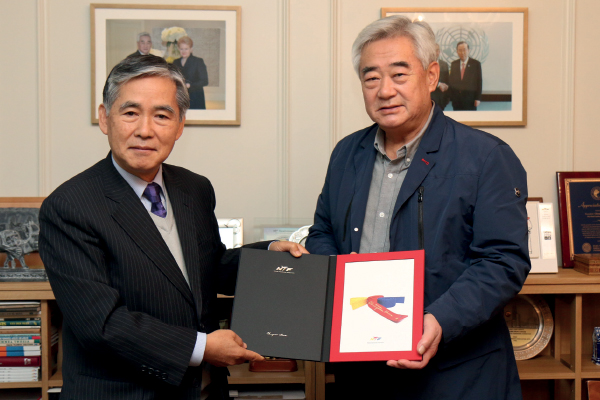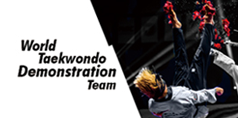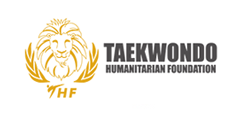South Sudan faces multiple challenges as it establishes itself in international society, but there is progress. And on the sporting front, taekwondo has led the country’s charge into the Olympic movement

South Sudan, the world’s youngest country, was born in the fires of war. But even in this infant nation, taekwondo is taking root.
From 1955-1972, and then from 1983-2005, two civil wars raged across the territory of Sudan. Some 2.5 million people in the northeastern African republic were killed; millions more were displaced; human rights violations were horrific and commonplace.
Finally, a comprehensive peace agreement was signed in 2005. Subsequently, after a referendum in which nearly 99 percent of the population in the south voted for independence, South Sudan split away from Sudan proper, becoming a nation state with its capital in Juba in 2011.
Still, the slaughter is not yet over: South Sudan faces armed insurrections on various parts of its territory. And in addition to these security issues, it faces a mountain of challenges, from infrastructure construction to poverty eradication.
Amid this landscape of destruction and reconstruction, of despair and hope, there is taekwondo. The driving force behind the sport’s development in South Sudan is retired Korean businessman Kee-chon “Casey” Kim, 65.
The Korean native first travelled to the Middle East as a staffer at Hyundai Construction in 1978, living and working in Saudi Arabia. He later left Hyundai and moved onto the periphery of the sports field, becoming an entrepreneur producing souvenirs and merchandize for the Seoul Olympic Organizing Committee. He subsequently got involved in taekwondo uniform supply.
It was in that capacity that he first visited Sudan in 1988, relocating to Khartoum in 2005. He was shocked at conditions. “I could not believe human beings could live like that,” he recalled. “There were no schools, no roads, no medical care.”
He moved to South Sudan when it split away from Sudan, working with a range of NGOs helping get the country onto its feet. In 2011, a Korean Army engineering unit was deployed to South Sudan on a UN nation-building mandate. Major Kim Sung-su, a taekwondo 6-dan, offered time after his official duties were over each day to teach the locals taekwondo. Casey Kim arranged a group of people to train with him. “Major Kim came out of the compound, and I collected 20 people in this empty space, with no roof,” he recalled.
That was the beginning of the new nation’s taekwondo story.
The former businessman is now a semi-permanent resident; he has been given the honorary nickname “Juba” by grateful South Sudanese. “I have retired from business, but I could not leave the country,“ he said. “Their situation was like Korea 60 years ago - too many orphans, too many child beggars.” He started teaching himself - and the word is spreading. “Lots of people come everyday. They had no uniforms, often no jobs. I give them simple food – biscuits and water.” He estimates that about 250 children and around 100 adults are now practicing. “If we collect all these people, taekwondo will give them courage, and it is also kind of fun,” he said.
For a country like South Sudan – where, Kim notes, even footballs are rare commodities - taekwondo may be the perfect sport: It requires no equipment, no special court or playing field, just the human body. “Teaching taekwondo to these children is very happy to me,” he said. Taekwondo is also a sport that is ideally suited to the South Sudanese physique. The tall, lean Africans have ideal bodies for a discipline that emphasizes high kicks.
Soon, the sport may get a boost from officialdom. South Sudan’s army, police and presidential guard are discussing the adoption of taekwondo classes; in the police academy it is likely to become a mandatory subject, Kim said, adding, “If we get a taekwondo coach, he will be very busy!”
Getting a coach is the challenge. A 5th-dan from the Sudanese capital of Khartoum has relocated to South Sudan to teach, but due to his age, his activities are limited. In 2013, the WTF dispatched a supply of dobok, and the same year a four-person Taekwondo Peace Corps team deployed to the country for a six-week coaching visit, teaching basics, poomsae and even taekwondo dance. That visit generated huge publicity, including spots on the national broadcaster. But it was only for six weeks, which raises questions over sustainability.
Kim himself is a red belt in taekwondo, having learned it during his national service in the Korean army; he teaches, but admits that he is not an ideal coach. His activities have had more impact on the communications and organizational fronts.
In 2015, Kim registered South Sudan with the WTF – the first sport in South Sudan to become a member of an International Olympic Committee International Federation. He and football coach Kim Hung-sae (no relation) – a missionary who live in Kim’s house – discussed how to register the country with the International Olympic Committee.
In order to win IOC recognition, five sports are required to be registered with their respective international federations. In fact, South Sudan would go on to register seven sports: athletics, baseball, basketball, football, handball, table tennis and taekwondo. Moreover, volleyball’s registration is pending. In June 2015 in Kuala Lumpur, Malaysia, South Sudan was approved as the latest member of the IOC.
Kim now sits as an executive committee member on South Sudan’s National Olympic Committee. He is also the president of the South Sudanese Taekwondo Federation.
2015 marked the first year that South Sudanese taekwondo athletes competed beyond their own borders. While the young and inexperienced team failed to medal at the Pan-African Games in the Democratic Republic of Congo, they did win two bronzes at the Chuncheon Open.
There are plenty of challenges ahead. Kim was recently in Seoul to discuss having another WTF Taekwondo Peace Corps Team and a Kukkiwon instructor deploy to the nation. While both the TPC and the Kukkiwon were receptive to the idea, the Korean Ministry of Foreign Affairs classifies South Sudan as a high-risk country, preventing Korean passport holders from visiting.
Kim, who insists that conditions are safe, disagrees. “The coaches can stay in my home, I will feed them and the South Sudanese government will protect them,” Kim said. “This coach dispatch is very important for taekwondo’s development in South Sudan.”
He hopes for a positive result when he appeals to the MOFA again in January.
In the meantime, there is work to do. Could a South Sudanese player make it to Rio? “We dream of going to the regional qualifications in Morocco in February,” Kim said.
In fact, his ambitions for taekwondo’s role in the infant country are even more ambitious than the Olympics: He would like to see a South Sudanese taekwondo team take on a team from the rebels who are fighting the Juba government.
“That is my dream,” he said. “The rebels have children too.”




































